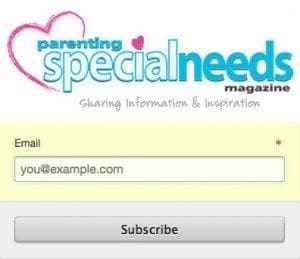As parents of children with special needs, you may be even more sensitive to this issue, and wonder what you can do to identify bullying in your child’s classroom or at home, and how you can best help your child overcome this abuse and ensure that their classroom is a non-hostile environment.
You are your child’s biggest fan and greatest advocate, so it is up to you to teach others how to treat your child with dignity and respect.
How can you tell if your child is a victim of bullying?
The truth of the matter is, any child, teenager or adult can be a bully victim, but a child that is viewed as different in any regard, may be particularly vulnerable. If you think your child is being bullied, talk and sympathize with them. Bullying is not a rite of passage, as some may deem it to be. Bullying can have a wide, long-term impact.
Some signs that a child is a bullying victim include if they begin creating excuses for not going to school or arrive home from school hungry or with missing items or torn clothes. If you notice sudden behavioral problems at home and school—they can’t concentrate on schoolwork or experience a drop in academic performance—they may be the victim of a bully. Isolation from friends and unexplained cuts and bruises can also be signs of bullying.
If your child doesn’t have a voice, it’s your responsibility to help them find one.
Regardless of the type of bullying, you should talk with your child about bullying behavior. Don’t dismiss or discount what’s happening; have the courage to take a stand. If you think it’s happening it probably is.
How are schools addressing bullying behavior?
It’s rare today to find a school that doesn’t have a zero-tolerance policy. I actually work with school counselors and administrators to really live the zero-tolerance policy and not just have it on a piece of paper. But it’s not just about zero tolerance, it’s also about tolerance and appreciation of others. Many schools have inclusive programs to help students appreciate and respect differences. Many school systems also require training for teachers and administrators that includes specific tools and strategies to identify and address bullying. But parents must also take on the responsibility of knowing whether their child is being bullied or is a bully.
We can’t just rely on schools to handle this problem. Parents, adults in the community—we all have a responsibility to stop bullying.
Dr. Colleen Logan, program coordinator for the M.S. in Marriage, Couple, and Family Counseling at Walden University’s School of Counseling and Social Service and a licensed, practicing counselor, is a highly sought-after speaker, known for her expertise in topics related to bullying across settings and age groups. She has been instrumental in working with school counselors and administrators to institute and implement zero-tolerance policies toward bullying, with an emphasis on creating an affirmative environment for all students.
SUBSCRIBE!
Sign up NOW to receive our “31 Back-to-School Tips for a Successful School Year” delivered right to your inbox.
Helpful Articles
- Disabilities Shouldn’t Define Individuals Awareness and Dialogue Promote Acceptance [3]
- How Bullying Has Affected My Daughter’s Life [4]
- Mate Crime Spotting the Signs of Fake Friendship [5]
- How to Help Students with Special Needs Avoid Bullying [6]
- BULLYING: A Real Threat to Your Child & Strategies for Preventing It from Happening [7]
- How to Identify Bullying {Tip 25-31} [8]
- Subtle Abuse [9]
- The Importance of Teaching Children Body Safety [10]
- BODY SAFETY BE AWARE: Some General Tips and Guidelines [11]
- Advice Needed! Legal Actions for Abuse in Classroom [12]
- Restraints in School: What Can You Do? [13]
- Sex Education: Teaching the Most Vulnerable [14]
- Digital Safety: An Ongoing Conversation [15]
- Summer Internet Surfing Keeping Kids Safe Online [16]
- When Your Child is Not Welcomed – Dealing with Jerks [17]


